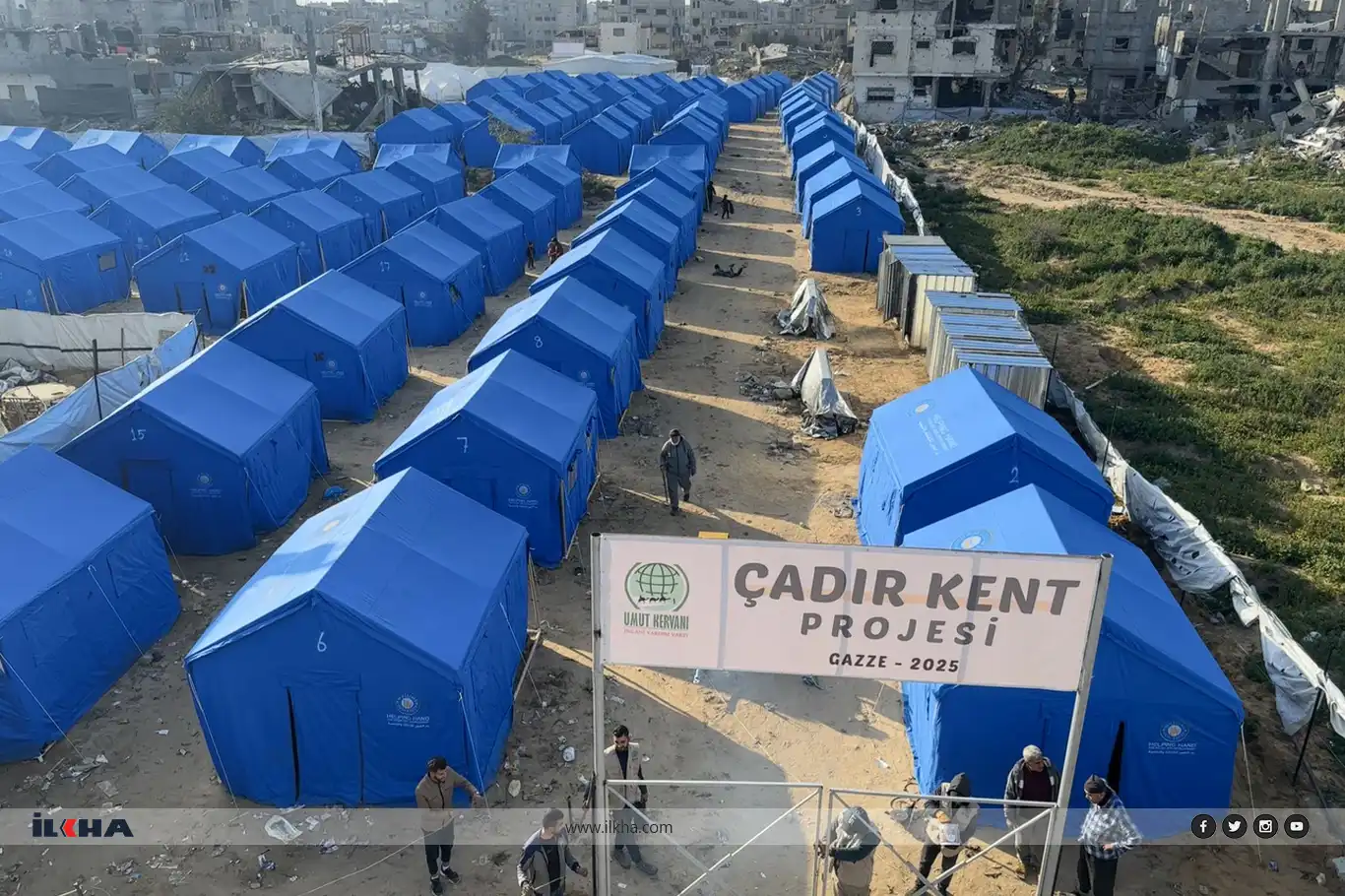Humanitarian crisis deepens in Gaza as thousands of aid containers remain blocked at Egypt border


Recent heavy rains have intensified the already dire humanitarian conditions in Gaza, where widespread destruction and a lack of shelter have left large segments of the population exposed to flooding, disease, and severe shortages of basic necessities.
Despite extensive international preparations to provide relief, tens of thousands of aid containers—equipped to supply shelter, schools, hospitals, and essential services—remain stranded on the Egyptian side of the Rafah Crossing. Humanitarian organizations warn that without immediate access, conditions will continue to deteriorate.
“Immediate steps must be taken”
Cengiz Kurtaran, President of the Hope Caravan Foundation (Umut Kervanı Vakfı), spoke to Ilke News Agency (ILKHA), emphasizing that the failure to allow aid in has become the primary barrier to relief efforts.
“Gaza is experiencing its most difficult days since the beginning of the war,” Kurtaran said. “After recent heavy rains, people found themselves submerged in water because they have no shelters. The Zionist entity has destroyed nearly 90% of the buildings in Gaza. Our brothers and sisters are in desperate need of shelter.”
He reported that tens of thousands of prefabricated containers, including two-story structures designed to function as schools and hospitals, were prepared months ago during a previous ceasefire period. However, they have been unable to enter due to border closures.
“The ceasefire terms are being violated,” Kurtaran said. “Guarantor countries must exert pressure, because opening the crossings and allowing aid in was part of the agreement. Both Israel and Egypt must be pressured to open the crossings and let the containers in as soon as possible.”
Infrastructure collapse and debris removal efforts
Kurtaran explained that humanitarian organizations have also begun assisting with debris removal in an effort to reopen vital roads. But with limited equipment, NGOs alone cannot manage the scale of destruction.
“Rebuilding quickly is not possible,” he said. “First the main roads must be cleared. We saw during our visit to AFAD that dozens of trucks and heavy machines were prepared and waiting to enter Gaza. The problem is that entry is not being allowed. Countries must apply pressure so aid vehicles can reach the area.”
Urgent appeal for shelter, food, and medical aid
Humanitarian teams report that Gaza’s population faces rapidly rising illnesses as winter approaches and the health system remains largely collapsed. While NGOs have established soup kitchens and bread-baking facilities in both northern and southern Gaza, relief workers stress that states must assume greater responsibility.
“We urgently call on all donors and the public to support our ‘Emergency Aid for Gaza’ appeal,” Kurtaran said. “People need safe, solid shelters. The tents sent during the summer were too thin and let in water. Better-quality tents must enter immediately, followed by containers.”
In addition to shelter, urgent needs include food supplies, winter clothing, and medical assistance. With large parts of Gaza’s infrastructure destroyed and border crossings closed, humanitarian groups warn that the situation will continue to worsen unless international pressure results in immediate access for aid convoys. (ILKHA)
LEGAL WARNING: All rights of the published news, photos and videos are reserved by İlke Haber Ajansı Basın Yayın San. Trade A.Ş. Under no circumstances can all or part of the news, photos and videos be used without a written contract or subscription.
As severe winter weather grips the region, the Orphans Foundation (Yetimler Vakfı) has distributed essential cold-weather gear to hundreds of orphaned and vulnerable children in Siirt, providing critical relief to families during the coldest months of the year.
The Turkish Ministry of Foreign Affairs has welcomed the signing of the Doha Framework for a Comprehensive Peace Agreement between the Democratic Republic of the Congo (DRC) and the AFC/M23 rebel group.
As winter approaches, the international humanitarian organization European Orphan Hand (Avrupa Yetim Eli) has intensified its support for orphans and children from underprivileged families through its "Winter Clothing Project."